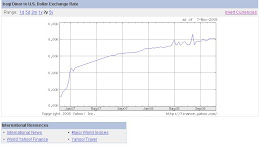The Iraqi Ministry of Industry on Tuesday said that it has completed renovation work on Basra's al-Najibiya electricity station, noting that all work has been carried out by "Iraqi hands."
"Ibn Majid General Company, which is owned by the Iraqi Ministry of Industry and Minerals, has finished rehabilitation work on al-Najibiya electricity station, which generates 90 megawatts for the country's national grid..," according to a ministerial statement received by Aswat al-Iraq - Voices of Iraq - (VOI).
Similar stations would be renovated by international companies, the statement noted, adding that it was the first time to be done by "Iraqi hands."
The statement revealed the company's readiness to implement larger and complex projects, including a project to install equipments and machinery in units 2 and 3 in al-Haritha Electricity Station, which is expected to supply the national grid with no less than 350 megawatts of electricity when fully operated.
There are four main electricity generating stations in Basra province: al-Shuaiba, al-Najibiya, al-Zubeir, and al-Haritha.
Basra, 590 km (340 miles) south of the Iraqi capital Baghdad, has an estimated metropolitan population of 2,300,000 in 2008.
Basra is the cradle of the first civilization of Sumer. It has the seven main Iraqi ports. The first built in Islam 14 A.H. (After Hegira), the city played an important role in early Islamic history.
The area surrounding Basra has substantial petroleum resources and many oil wells. The city's oil refinery has a production capacity of about 140,000 barrels per day (bpd).
Basra is in a fertile agricultural region, with major products including rice, maize corn, barley, pearl millet, wheat and dates as well as livestock.
A network of canals flowed through the city, giving it the nickname "The Venice of the Middle East" at least at high tide.

